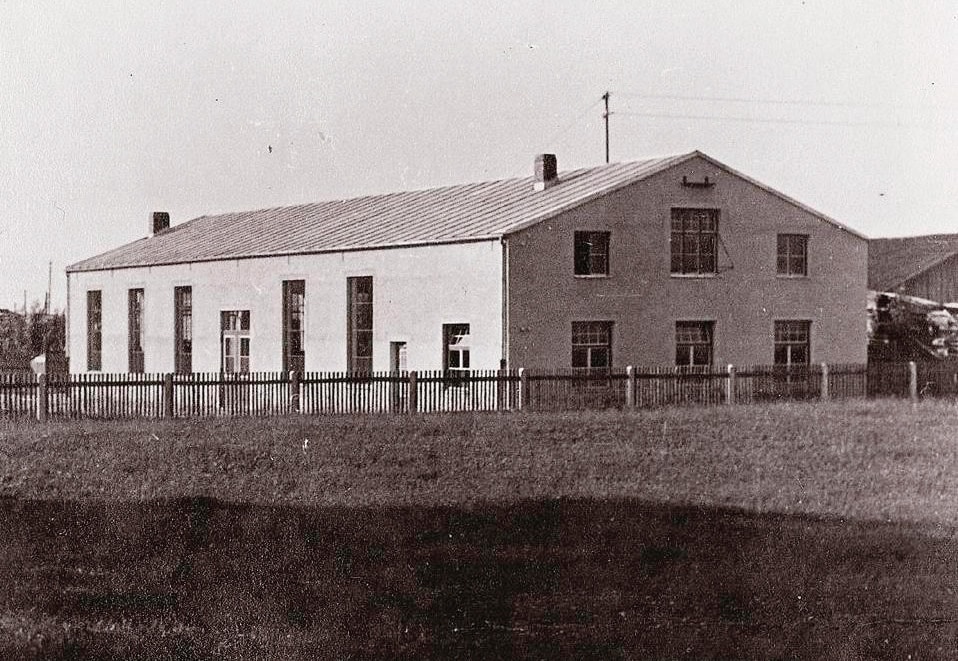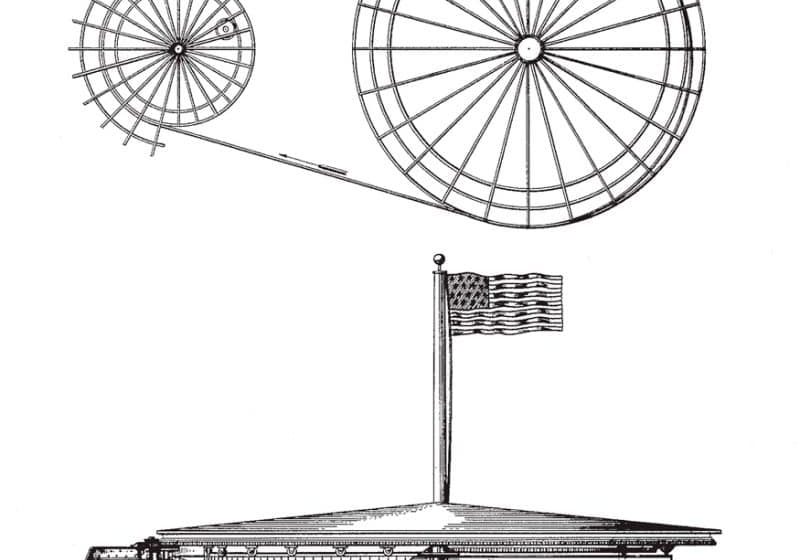Opening Doors
Jun 1, 2014

Now in the hands of a third generation, Munich, Germany’s Riedl Aufzüge continues to thrive after 80 years, thanks to innovative products and focused relationship building.
His employer’s 1930 bankruptcy ended up opening doors for 35-year-old Munich blacksmith Hans Riedl. The shift in fortune prompted Riedl to change careers to elevator maintenance, and he went on to found his own company, Riedl Aufzüge, in 1934. With limited manpower and resources, the company hung on by a thread throughout World War II, reemerging afterward with three employees. In 1947, Riedl Aufzüge produced its first passenger lift. Since then, the company has steadily built its expertise and customer base to become a well-respected operation with 100 employees and customers all over the world. Its specialty is ultra-thin elevator doors. Since 2001, it has been run by Hans’ grandchildren — cousins Christoph Lochmüller and Peter Andrä, who have college degrees, industry experience and their grandfather’s knack for innovation, hard work and customer service.
The company is headquartered in Feldkirchen, on the eastern edge of Munich, in an area that was relatively isolated in the 1930s. The original, 16,200-sq.-ft. building is still on site and has since been joined by five additional buildings covering 17,150 sq. ft. that house manufacturing, delivery, storage and administration. As Munich’s population grew, civilization grew up around Riedl Aufzüge, which, in 2002, necessitated construction of a new, 44,000-sq.-ft. facility approximately 1 mi. away. Conveniently linked to the Autobahn, the modern facility has helped make further growth feasible. “We have access to computer-integrated manufacturing and laser technology on site, so we can quickly find and implement solutions,” Lochmüller notes. “A challenge presented on Monday can be fully delivered by Friday.”
The company is poised for growth, thanks to a combination of building strong customer relationships and coming up with customized solutions for them. States Martin Grabmayer, director of Door Sales and Components: “Riedl is setting trends; the company has never been running behind them.” Currently, Riedl Aufzuge’s business breaks down as 45% new installations and modernizations; 35% maintenance; and 20% doors, cabins and safety gears.
In the past several years, a huge part of Riedl’s trendsetting has been in the form of doors, specifically its proprietary thin lift door, “Liz,” which has the dual advantages of providing more cabin and building space. In big cities, where square footage is at a premium, the product is quite popular. The line was developed based on feedback from customers. Grabmayer elaborates:
“Riedel doors have always been well known for superior quality, dependability and customer-oriented flexibility. Our mission statement is, ‘Customized doors are our standard.’ In accordance with this, our customers’ desires and feedback have always been our motivation for setting new trends in the field of lift doors.
“Riedl knows that space is money. In higher buildings, dozens of square feet are wasted by the use of standard doors. With Riedl doors, this space can be sold or rented. Due to the latest developments in engineering, processing and manufacturing, we have been able to offer not only the slimmest door on the market, but also one of the most robust ones.”
Riedl unveiled Liz at Interlift 2011 and introduced a six-leaf, glass design at Interlift 2013. Grabmayer said there will likely be additional features and products unveiled at the 2015 event. Response has been enthusiastic, he said. Customers include hospitals, hotels and many others.
Emerging in 2003, European standard EN 81-58, Safety Rules for the Construction and Installation of Lifts — Examinations and Tests paved the way for Riedl’s new generation of telescopic sliding doors. Riedl literature elaborates:
“Peter Andrä, managing partner of Riedl, recognized his chance at the time, and, over the three years before the launch in 2011, worked intensively on developing the new telescopic sliding door ‘Liz.’ The new standard introduced a lot of freedom in the choice of joining method. The old Deutsches Institute für Normung (DIN) only allowed welding, but now we were able to use a high-tech adhesive for the stiffening profiles that had never been used in lift construction before. Riedl was one of the first manufacturers to present a telescopic sliding door of only 125 mm door set thickness at [Interlift].”
Liz:
- Saves 15 cm of shaft depth per floor
- Has a threshold width of 62.5 mm
- Measures 150 mm from cabin recess to shaft wall
- Is fire rated in accordance with EN 81-58 standards
The Haus der Normung, DIN’s Berlin headquarters since 1965, has become a showcase for Liz. Its 10-story tower is heavily trafficked, with the building’s approximately 560 employees receiving nearly 50,000 visitors annually. This resulted in consistently long waits for its two elevators. A study performed by an architecture firm found that capacity needed to increase by 30%. However, the stairwell impinged on possible maximum cabin size. That is where Liz came in.
The slender, four-wing Riedl door brought capacity from six to eight passengers (approximately 630 kg). It also allowed the installation of natural stone floors. Commissioned in summer 2012, the panoramic lift is now the preferred method of conveyance for carrying dignitaries from all over the world between the parking garage and the institute’s conference room.
Andrä is confident the design will continue to become thinner and stronger. He expects that both shaft head thickness and door-package thickness will shrink.
While Liz comes in several standard designs, Riedl has long prided itself on custom manufacturing, Andrä states. The company is particularly adept, he said, at designing and building custom cabins for historical structures. Through the years, Riedl has built more than 10,000 systems, incorporating materials such as stainless steel, wood, glass and marble. “We make sure every cabin blends seamlessly into the building, while satisfying all personnel and fire-safety requirements,” Riedl literature states.
Riedl’s long-term customer list attests to its ability to deliver. They include the German arm of U.S. company Texas Instruments; Alois Dallmayr Kaffee OHG, Rohde & Schwarz GmbH & Co. KG and Rechts de Isar Hospital, all in Munich; and international food producer Hipp in Pfaffenhofen, Germany. While new installations are limited to south Germany, the company sells doors throughout Europe, the U.S. and Asia.
Company leaders place great importance on interacting with potential customers. Besides Interlift, Riedl regularly hosts booths at BAU Architecture, a materials and systems trade fair, and at Heim+Handwerk (home and craft) trade fair. “It has always been very important to get in touch with the customers, as it is necessary to know the persons behind the companies,” Grabmayer notes. Already having laid the groundwork for growth by more than doubling its size, Riedl is optimistic about the future. In 20 years, Grabmayer sees Riedl among the world’s top trendsetters. “We are looking forward to expanding to other European countries and outside the European Union,” he said.
Get more of Elevator World. Sign up for our free e-newsletter.








